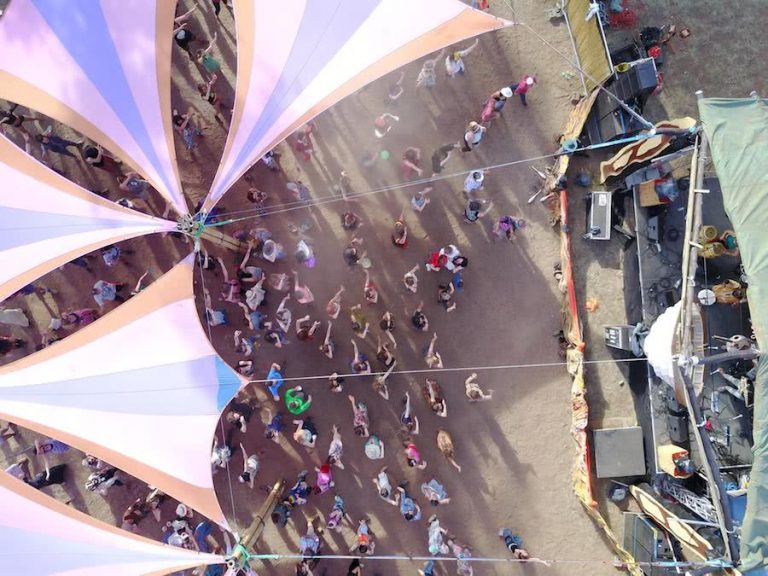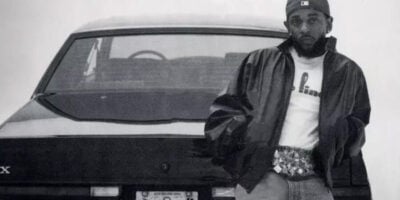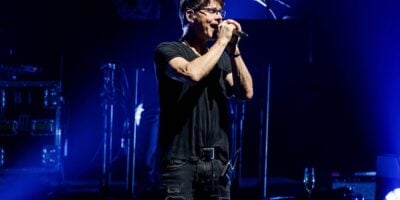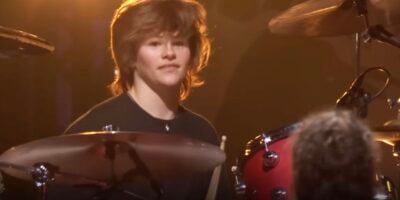Music festivals are ethereal experiences – late nights spent in faraway places, dancing away to your favourite (or new favourite) artist under a blanket of beaming lights and sounds. They’re truly magical and make for life-changing musical moments that attract punters from far and wide to revel in this carefree nature.
Despite the fun they bring, there always seems to be a punter or two who can’t help but put a dampener on things. Whether it’s disrespecting the land the fest is held on, heckling during your favourite tune or hollering just that little bit too close to your tent, festival behaviour is a topic of much discussion as their existence have become such an integral element of the millennial psyche – they’re microcosms of society and what goes on in the mosh pit is a massive reflector of what happens in the real life.
Wide Open Space is a festival founded on an ethos of respect inclusivity, representation and environmental awareness. Held in the heart of Central Australia’s majestic MacDonnell Ranges, its culmination of music, art and culture makes for a unique experience and its message is founded within the conversations amongst punters, the artists who play and the vibe established by its hard-working team.
When heading to a festival, whether it’s in Byron Bay, Wollongong or even the dusty Australian desert in the heart of Alice Springs, punters have a responsibility – ensuring their fun isn’t impinging on anyone else.
Wide Open Space’s director Scott Large opened up about what makes the Wide Open Space so special and most importantly, how to be a conscious festival goer.
On what the catalyst for starting festival like Wide Open Space was
“It was the community that demanded it really, it’s our 10th year and we started the festival there wasn’t a lot happening in the northern territory – especially a camping music festival outside the township. It’s a very active arts and cultural community. A lot of people wouldn’t expect that, but it is an amazingly productive community so it felt like there was a real need for it to happen.”
Love Music?
Get your daily dose of metal, rock, indie, pop, and everything else in between.
“As we’ve grown, we’ve attracted so many more people from interstate that would be interested in this kind of event. It’s great for the tourism economy and a great opportunity to exchange ideas.”
On breeding a culture of positivity
“We’ve always maintained the need to ensure the festival is a safe space. We’ve always really wanted it to be a family friendly space and a lot of festivals aren’t directed that way. We keep the family space in the middle ofthe festival – we find if there are kids around people tend to regulate their behaviour.”
“We tend to attract a really great audience, a really conscious audience, a compassionate audience. We’ve never had any significant issues on site in terms of behaviour, and that is one of the core parts of our ethos and operation. We think there’s a space for everyone here.”
“We try not to over-regulate the event too much. We try not to have too much security – we believe that people are able to look after themselves and each other without being over policed.”

On whether the actions of punters falls on the individuals or the organisers themselves
“The services that you provide and the messages that get communicated to punters as well is really important.”
“For example, having the proper infrastructure in place to provoke conscious behaviour is key. Having good waste management systems, recycling systems and having conversations to punters about their responsibilities as a conscious festival goer. It definitely has an influence on how people behave.”
“I think general societal attitudes also have an influence – every generation has people who have people evolving and moving forward, but there are also people who are happy to ride along with the tide who aren’t as motivated”
“We’re seeing a lot of the bigger festivals dealing with some difficult issues and attitudes to what kind of expectations they have of punters – I think all festivals go through that as they grow. When a festival of 30, 000 is a small town – there will always be some people who don’t respect the space regardless of how much work you do or the systems you have in place. There’ll always be a percentage of people who are lazy because it’s “too hard” or they got “too wasted” – those people can often tarnish the majority of people who are doing the right thing.”
“In the end, there are a lot of people out there that don’t believe in how important it is to deal with your own impact. Those conversations are important to have.”

On how artists contribute to this culture of positivity and its impact
“What artists your booking will attract different people and they’ll establish the dynamic greatly”
“We exist in more of an underground sphere in terms of who we book. Last year we booked some bigger acts like Hiatus Kaiyote and this year we’ve got REMI, Haiku Hands – we really take that seriously in our program. It’s not about who’s smashing out the hits at the moment, or who’s the hottest thing. It’s about who’s gonna come and understand what we wanna do here – we want artists who’ll get out there, have conversations and engage with the local bands, mix it up and collaborate”
“Last year Hiatus Kaiyote collaborated with a local indigenous group. We presented to them the opportunity to sing some stuff in language and to actually helped re-arrange one of their songs and present it as part of their set. They came out and really got amongst the festival experience – Nai really understood the meaning behind what we’re trying to do. It demonstrates on a deeper level, the work that goes into creating a really meaningful experience.”
“We want artists to share a conversation and join in discussing what happens with artists in central Australia so they experience something a little deeper than just playing a set. It’s been really successful in that regard so far, we do our research and find the kind of artists that’ll harmonise with the ethos of the event.”

On indigenous representation
“It is purely a representation of what it’s like in Central Australia. The local clans and tribes are just a part of life and they’ve got lots of friends and colleagues who grew up out bush, who still speak their native tongues and go through ceremony – they have a living culture. It’s a really special thing to be a part of.”
“We work with a lot of different bands from across the country, traditional artists, and dancers and we put their work in a really contemporary setting. We do traditional welcomings and we love to put some of those bands alongside the headliners to really showcase what they can do.”
“What a lot of people don’t realise that even those who live outside the more developed areas are so cultural savvy – they’re up to speed with the current musical trends and they’re quite open-minded, a lot of hip hop, trap and reggae. Wide Open Space has become the place to have these conversations musically, artistically and socially, we never really know where that will go but we want to open up a platform for it.”
“It wouldn’t be authentic if there weren’t indigenous voices in it because that’s just life in the northern territory. There’s a lot of cross cultural activity and it wouldn’t be real if it didn’t represent that.”
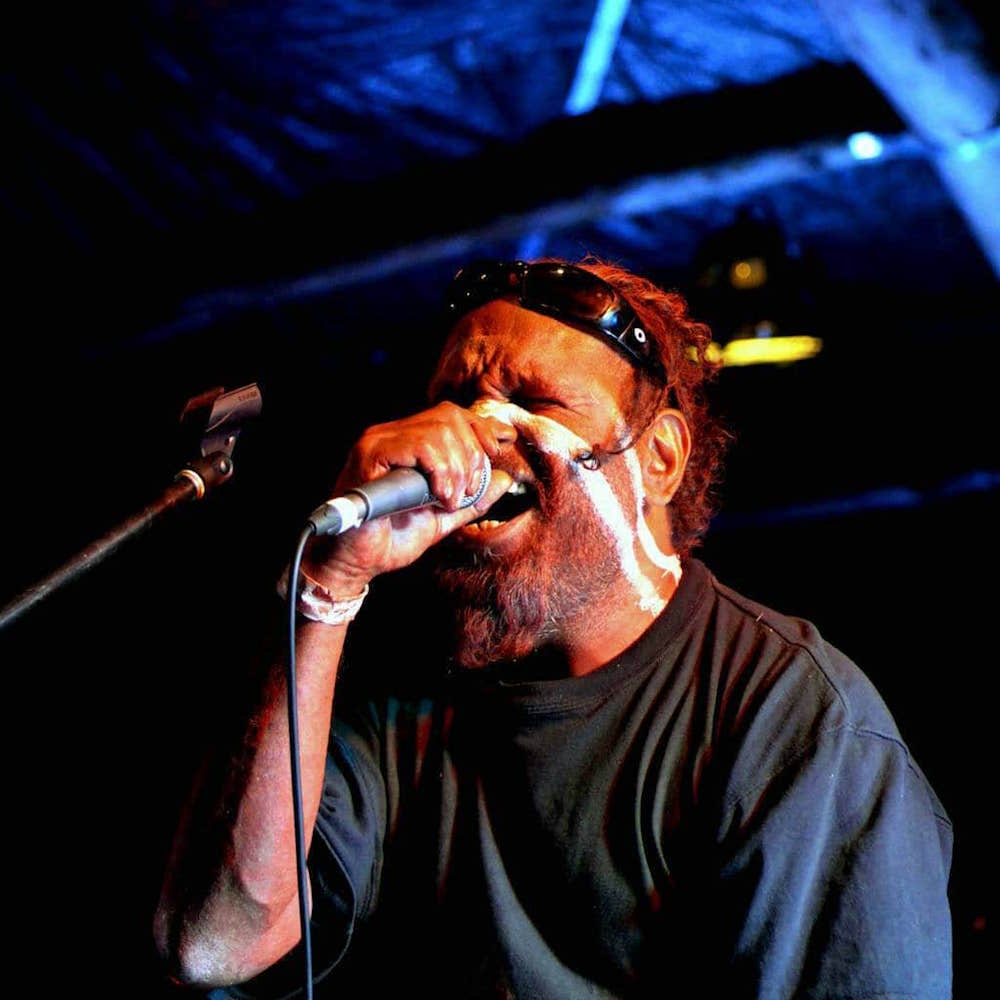
Wide Open Space festival is on this May at the Ross River Resort in the Northern Territory. You can catch tickets and suss out details over on the festival’s website.































